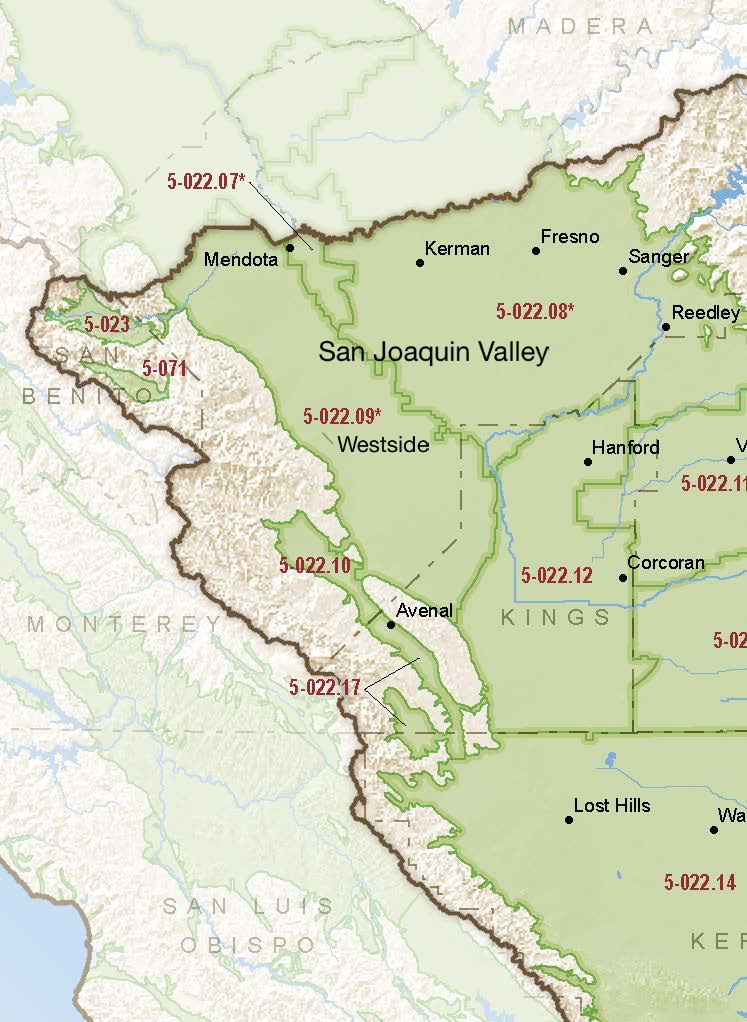San Joaquin Valley – Westside
Statistics
- Basin Name
- San Joaquin Valley – Westside
- Basin Number
- 5-022.09
- SGMA Basin Priority
- High
- Critically Overdrafted
- Yes
- Hydrologic Region Name
- Tulare Lake
- Counties
- Fresno, Kings
At-A-Glance
Located in California’s Tulare Lake hydrologic region, the San Joaquin Valley – Westside subbasin is 621,823 acres in size. This High priority basin is home to an estimated 18,601 people (2010 value). It has approximately 1253 wells, of which approximately 9 are water supply wells. Groundwater accounts for approximately 82.78 percent of the basin’s water supply.

Basin Notes
2003: Bulletin 118 basin description
2014: CASGEM basin prioritization – high
2016: Basin boundary modifications approved with Kings 5-022.08, Madera 5-022.06, Delta-Mendota 5-022.07 and Tracy 5-022.15 subbasins An amended, approved modification was also made with the border of Pleasant Valley subbasin 5-022.09
Revised basin boundary description
2018: Draft priority : High. Groundwater level and subsidence comments:
- CRITICAL OVERDRAFT. 1) CASGEM/WDL/GWIDS: No data or data insufficent to determine GWL status. Source: DWR 2) The canal, now considered the middle section of the California Aqueduct, passes through three major subsidence bowls: 1) southwest of Mendota, 2) near the town of Cantua Creek, and 3) near the town of Huron (Ireland and others, 1984). Because subsidence due to groundwater extraction had adversely affected the earlier-built Delta-Mendota Canal, designers incorporated as much as 10 feet of extra freeboard into the San Luis Canal, adding $30.7 million (2013 dollars) to construction costs. Sources: Land Subsidence from Groundwater Use in California, James W. Borchers, Michael Carpenter, Luhdorff & Scalmanini, California Water Foundation, April, 2014 2) Current Land Subsidence in the San Joaquin Valley, USGS; 3) Progress Report: Subsidence in the Central Valley, California, Jet Propulsion Laboratory, California Institute of Technology, NASA 2015-16
Final Basin Prioritization: High.
2020:
- January 23 – Westlands Water District GSA submitted a Groundwater Sustainability Plan (GSP) to the Department of Water Resources (DWR)
2022:
- January 21 — DWR found the GSP incomplete and gave the GSA 180 days to address deficiencies.
- July 18 — GSA resubmits an amended GSP
2023: October 26 – DWR approved the GSP
